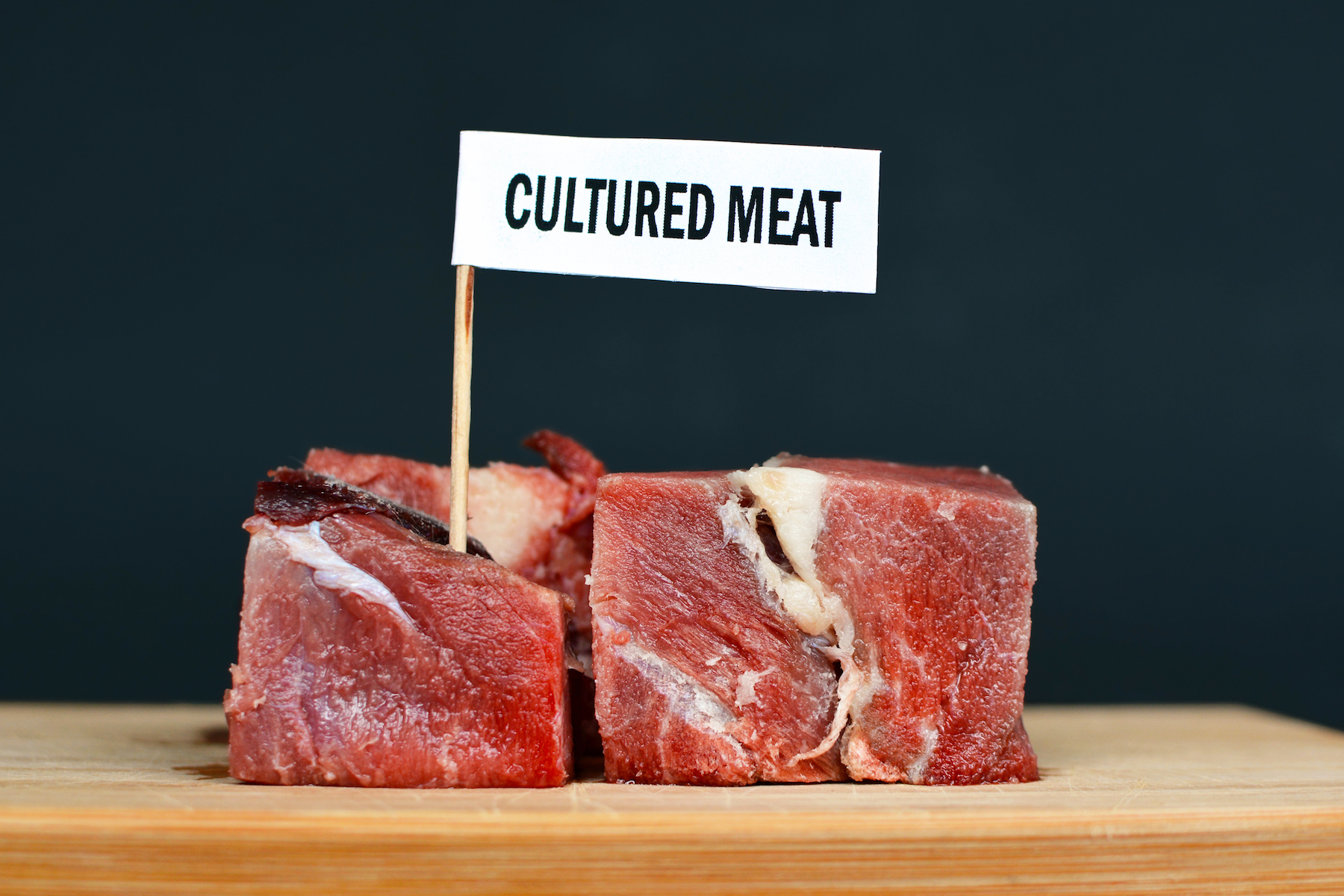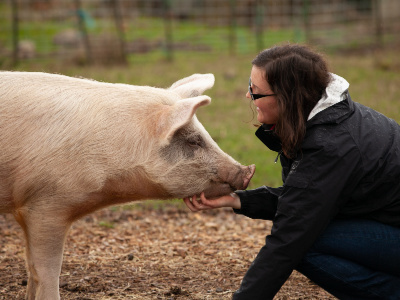Cultivated meat has been a hot topic in recent years. What is it, how is it made and is it vegan? We answer your questions below.

What is cultivated meat?
Cultivated meat – also known as lab-grown, cultured, in-vitro or clean meat – is meat made from the same animal tissue that makes up conventional meat. But rather than farming and slaughtering whole animals, it is made using a small number of animal cells placed in a nutrient-rich medium inside an incubator where they multiply rapidly.
The result is an edible product that looks, cooks, and tastes like animal meat because, biologically, it is animal meat. The major difference is that an animal does not need to be killed to make it. However, animals are currently still involved in the process in very small numbers.
The very first cells used to start the replication process do come from animals. These cells can be collected via a biopsy where a very small piece of flesh (the size of a peppercorn) is removed from a living animal, or even taken from a feather, so there is no need to kill an animal.
In fact, the first commercially available cultivated meat – chicken nuggets produced by Eat Just and now on sale in Singapore – used cells from a feather shed naturally by a chicken named Ian who lived out his days on a sanctuary. Just a few cells are needed to kickstart the process, for example one peppercorn size sample taken from a cow can produce 88,000 burgers, so the number of animals used for cell collection is very small.
Some cultivated meat is also currently grown in an animal-based medium, primarily foetal bovine serum which comes from the blood of a cow foetus. However, new methods are being found to produce growth mediums without animal use. Eat Just grows its chicken cells in a nutrient-rich plant-based medium, as do others such as Mosa Meat and Aleph Farms which are both growing beef.
Is cultivated meat vegan?
No, it is actual animal tissue therefore it is not vegan. However, some people who are vegan because they do not want to cause animal suffering might be perfectly comfortable eating cultivated meat if they feel no animals were harmed in the process. Equally, those who are vegan to reduce their impact on the planet might feel comfortable eating cultivated meat as the environmental impact is drastically smaller than animal farming.
Because cultivated meat is actual animal tissue, it will still contain saturated fat, cholesterol and other constituents that are found in meat from slaughtered animals so it would not necessarily provide the same health benefits as a whole food plant-based diet. The sterile manufacturing process and lack of large-scale animal farms would at least limit the risk of future pandemics associated with meat production.
Should vegans support cultivated meat?
Yes! Even if they do not want to eat cultivated meat personally, anyone who is vegan to reduce animal suffering or protect the planet should support cultivated meat.
While veganism is a popular and growing movement and the number of vegans has been on the rise for the past few years, most people unfortunately still continue to eat meat. Meanwhile, the global population is increasing, and meat and dairy consumption globally is growing along with it.
Many people, despite being aware of the suffering of animals on factory farms as well as the environmental degradation associated with meat, still won’t give it up. Cultivated meat has the potential to satisfy people’s desire to eat meat without requiring the rearing and slaughter of animals.
Research has suggested that the environmental impacts of cultured meat would also be significantly lower than those for normally reared and slaughtered animals. A study by researchers at Oxford and the University of Amsterdam found that cultured meat was “potentially much more efficient and environmentally-friendly, generating only 4% of greenhouse gas emissions, reducing the energy needs of meat generation by up to 45%, and requiring only 2% of the land that the global meat/livestock industry does”.
Our vision at Veganuary is world without animal farms and slaughterhouses. A world where food production does not decimate forests, pollute rivers and oceans, exacerbate climate change and drive wild animal populations to extinction. Cultivated meat could play a crucial role in making that vision a reality. For the sake of billions of animals suffering every year in the meat industry and our planet on the brink of collapse, that reality cannot come soon enough.













